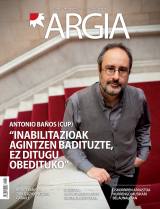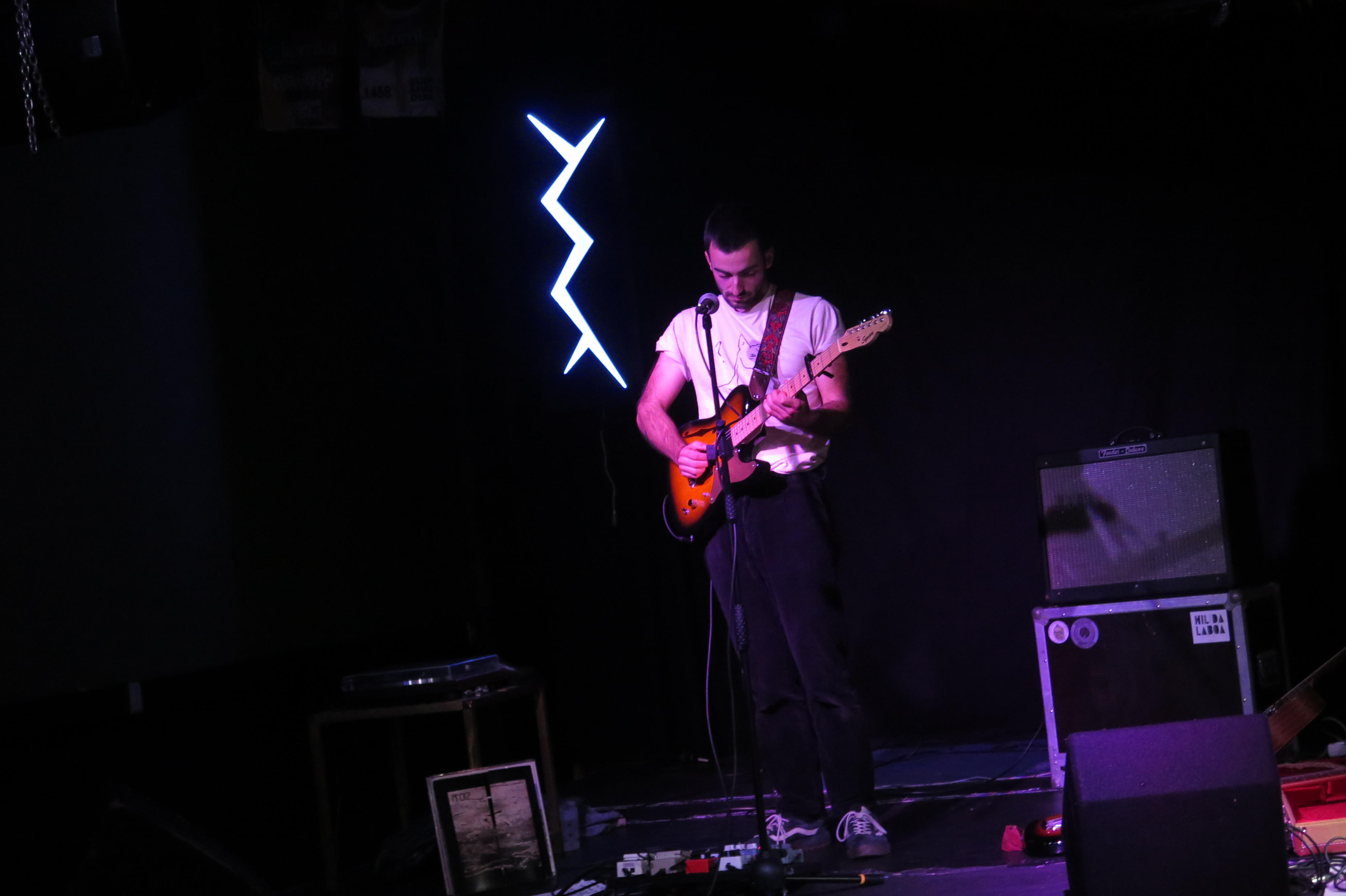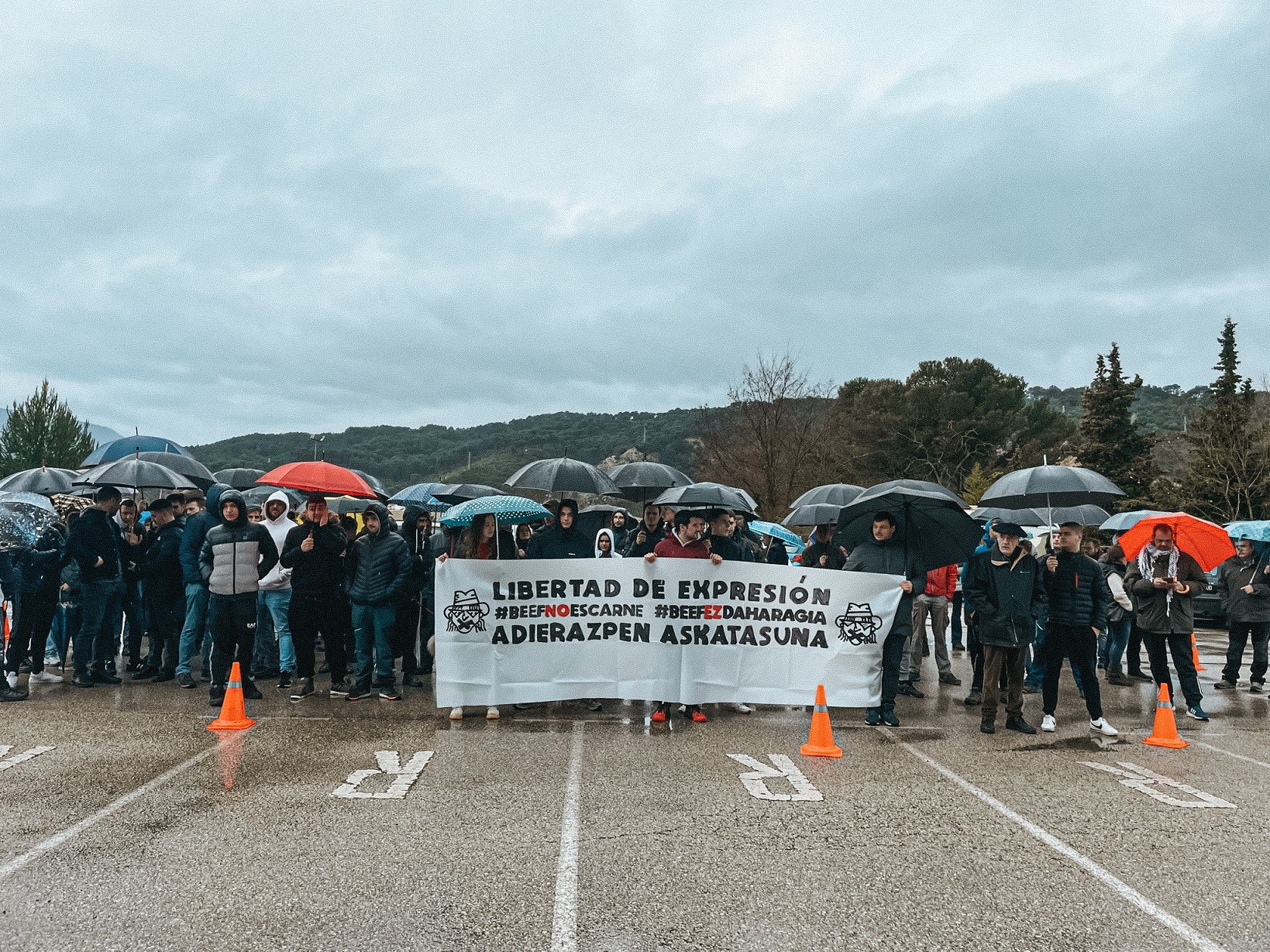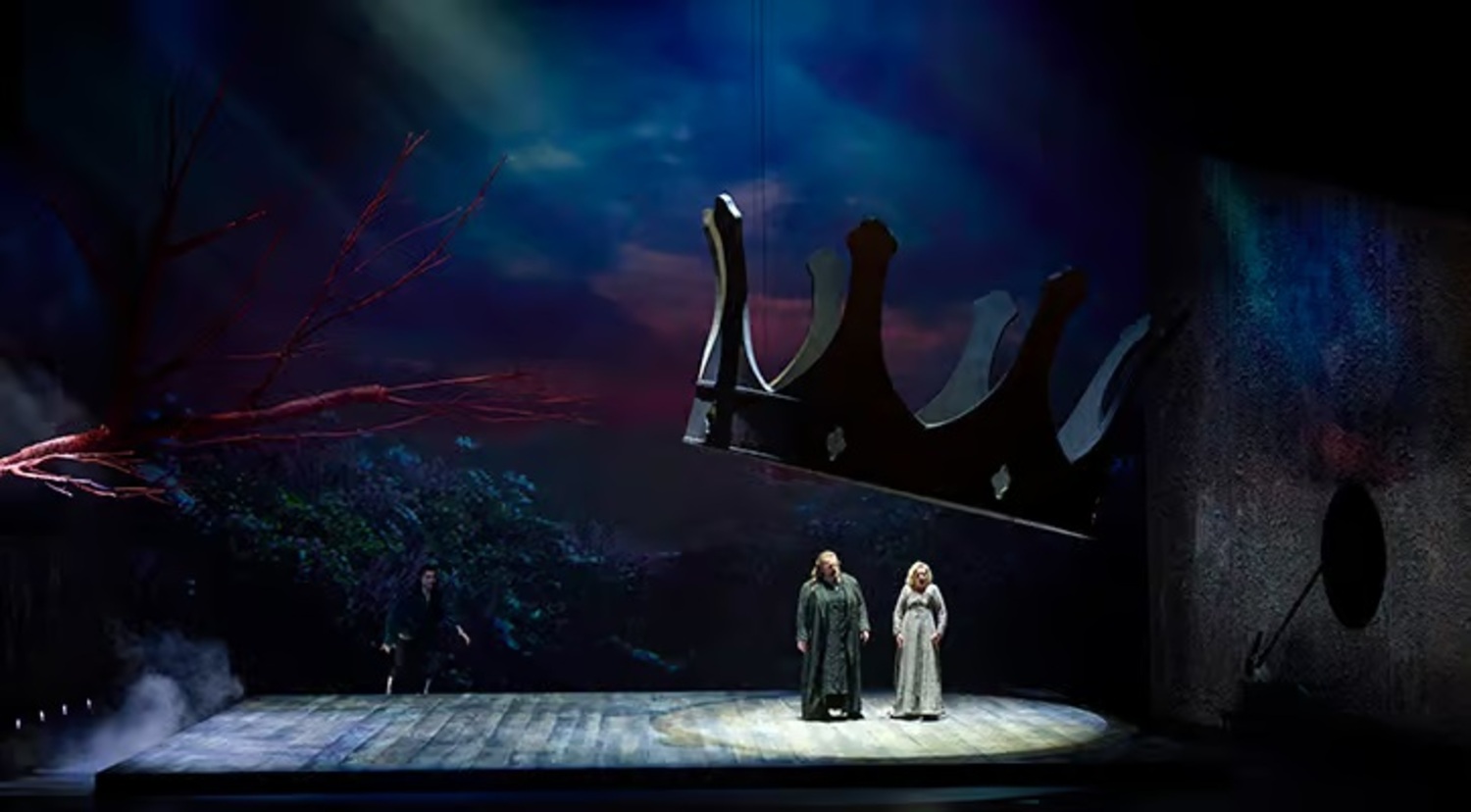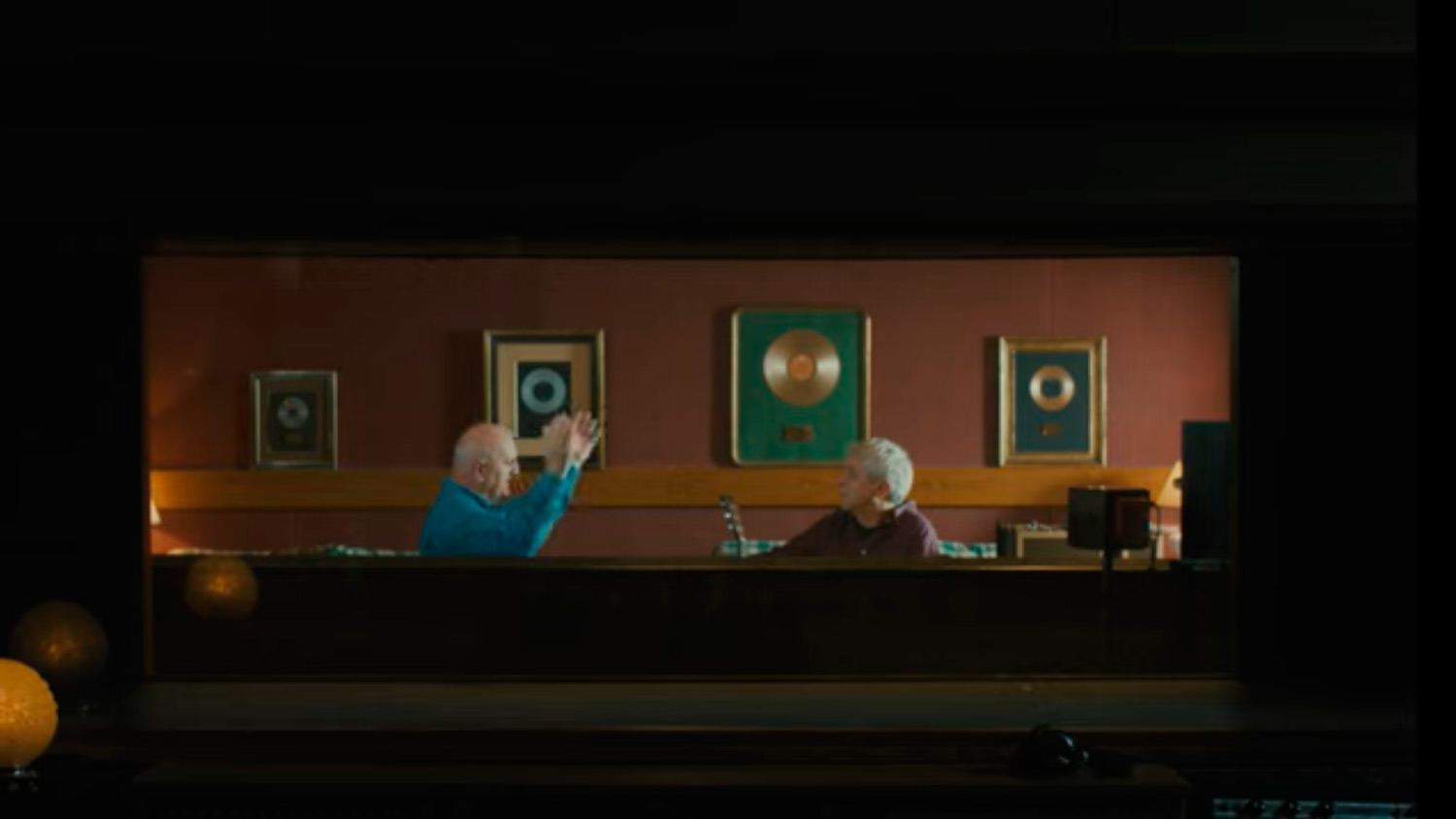There will be something left
- The dissolution of Oskorri has resulted in a series of penalties since the end of four decades of progress was announced in June. Some have expressed concern about the indifference to the Basque culture, which has been able to force the group’s greetings, and others have highlighted the transmission capacity of the classic Basque group. That is what we have talked about with Maite Arroitajauregi, Imanol Epelde and Xabi Ubeda.

“Without being a follower of Oskorri, I take Oskorri in my house.” It is the words of Imanol Epelde Etxepare Rap, but perhaps many Euskaldunes – young and not so young – can take their place. Since its birth in 1972, Oskorri has been one of the most referential groups for more than one generation, after a total of 3,000 concerts and a legacy of about 500 songs.
Maite Arroitajauregi Mursego is the childhood in the head when he talks about Oskorri, although the trail he has left is still noticeable today: “The songs I have so present in my memory – This is weakness or Aita San Migel – will have some influence on me and my music.” Xabi Ubeda Baxiri, guitarist of Jupiter Jon, is the first to appear, along with the voice of Anton Latxa, the cover of Oskorri's first albums. However, he believes that they have not influenced him musically: “Ours is another roll: it has more to do with punk and other things.”
Why has Oskorri decided to dissolve? The members of the group refused to make statements, as they agreed before the start of the last tour. It is possible to speak with a time perspective, but what Natxo de Felipe said in the interview held in Berria in 2013 is significant: “We are not ready to end. The situation is about to end us.”
Policies and controversies
Oskorri’s trajectory has had a controversial moment. After knowing the censorship of singing in Basque, they became called “Spanish”. Even those who were published in the aforementioned interview raised controversy, since in Euskal Herria the group's best known face said that "the boundary between ideological criticism and the attack was very diffuse".
Asked if current politics conditions the musician, Ubeda explained that the group has experienced "quite surreal" situations, as it has happened. From his humor he has reported that in one of his concerts some young people entered with a banner in which they denounced that they were "treasurer and capitalist". However, Epeld believes that nowadays everything is left “more open”: “The social claim has blurred a lot in the letters and in the creator; the ambiguous look has prevailed in the description and denunciation of what we are.”
Arroitajauregi has clarified that there are many ways of doing politics that are materialized in small decisions: “Record publishing mode, price, live broadcast energy, commitment to work…”. Through these small decisions, Mursego gives political meaning to his activity.
Is there any transmission?
Oskorri has been given a special ability to recreate tradition. According to Arroitajauregi, “the punk rock groups will be stylistically, but I don’t know if there is a group that has so well united tradition with modernity. I have read it to Ibon Rodriguez and I completely agree: Oskorri’s reclaimed old songs and did them intentionally, giving contemporary words to old songs and new melodies to old texts.” Although it is not a regular activity, the transmission work carried out through the music of old texts or songs is considered very interesting.
Epelde sees similarities with Oskorri in his creation: “Oskorri has a album with letters by Bernart Etxepare [Mosen Bernart Etxepare 1545, 1977] and has made a great effort to bring tradition to our day. I have also worked on it, with one difference: rather than basing myself on folk, based on rap and electronic music.” In his opinion, there are those who have taken the witness of “the old words and the air restarting the melody”, but see the problem in the reach. “What is not in youth, how do we get there?”
Ubeda sees that groups of young generations will have more difficulty reconciling ages and audiences, as some of the current references – Benito Lertxundi and Mikel Laboa – have achieved. “But who knows?”
“A terrible lie”
Natxo de Felipe stated in Berria that “the subject of Basque culture is a terrible lie”, referring to the poor conditions experienced by many Basque creators. In a similar vein, Arroitajauregi believes that the Basque culture is “stuck”: “It does not advance; we have to move forward without forgetting what we are and taking care of the heritage we have, and I do not know if the institutions are willing to do so”.
“We have to interpret the world today from our own. It is essential to open the doors while keeping what we are,” says Epelde. To do so, he believes that it is necessary to open spaces for experimentation to investigate. Because without dissemination, research and transmission, creation is “caught up”, especially in a culture like the Basque one.
With the choice of living from creation, Epelde states that, despite having done the best work possible, he will never be a creator “as comfortable as a teacher”. He believes that his eagerness to create people living in the future is limited.
This is the farewell.
“As far as I know, Oskorri has said they leave, but not why. Who has come to them to ask them what has happened, why are they going to leave their 40 years of career?” Epeld asked. He has criticized that creation is entrusted to the will of individuals, although it should be “fed and pampered” so that culture continues to feed the people.
Mursego also asks: “Why have we not been able to keep Oskorri?” he explained that although times have changed, there have been more places to listen to live music and that in Donostia, for example, every weekend there are a dozen concerts. However, he has denounced that he is going to the concerts, rather than listening to music, to say that they were there the next day. “Programming Oskorri is expensive, right? Maybe we should be more militant. Culture is not a hobby, it is an effort, it makes us people, from every place. If culture defines us, we should take better care of it.”
At least for Oskorri it seems to be late. The farewell tour carried out under the name of Hauxe gives farewell ends on 22 November in the Arriaga de Bilbao.
1970-1980
Musikalki berrikuntza asko gehitu bazituzten ere, garai honek letren eduki errebindikatiboa izan zuen ezaugarri nagusi. Gabriel Arestirekin batera egindako lana taldearen abiapunturik garrantzitsuena izan zen, baina letra egileak ere izan ziren urte hauetan: Mikel Zarate, Alfontso Irigoien, Xabier Amuriza eta noski, Bernart Etxepare. Bi single (Aita semeak eta Egia da) eta hiru disko argitaratu zituzten hamarkada honetan: Gabriel Arestiren oroimenez, Mosen Bernat Etxepare eta Oskorri. Dudarik gabe, aldarrikapen handieneko kantu eta urteak.
1980-1990
Taldearen esperimentazio garai nabariena izan ziren. Musikalki, melodia herrikoi asko moldatu zituzten, tresna tradizional gehiago erabiltzen hasi ziren eta aldi berean gitarra elektrikoari eta saxoa bezalako instrumentuei pisu handia eman zieten. Aton Latxak eta Fran Lasuenek abesti ugari egin zituzten ahots nagusian, taldeari puntu heterogeneo eta freskoa emanez. Plazarik Plaza diskoko kantu guztien letrak Natxo de Felipek egin bazituen ere, gainontzeko diskoetan idazleen eta hainbat bertsolariren lana erabili zuten. Aipagarriak dira Xabier Amuriza (Euskal Herrian Euskaraz, Nafarroa, Kyrie Eleison...) eta Jon Sarasua (Atzo Goizean, Amoriua, Zalaparta…). Zortzi disko osotara. Urrezko hamarkada, disko borobilarekin amaitua: Datorrena datorrela.
1990-2000
Agerian geratu zen taldearen gaitasun polifazetikoa. 1991n Hi ere dantzari grabatu zuten Euskal Dantzarien Biltzarrarentzako, 1993an Kukubiltxorekin batera lehen haur ikuskizuna, diskoa barne: Katuen Testamentua, 1998an Marijane kanta zanekin errepikatuko zutelarik; eta 1997an hasiko ziren The Pub Ibiltaria formatu eta bildumekin, urtero bat argitaratuz. Tartean, estudioko bi disko (Badok hamairu eta Landalan) eta zuzeneko galanta 25. urteurrena aitzakia. Formazioan aldaketa ugari, nukleoak (De Felipe-Latxa-Martinez) tente eutsi ziola. Oskorri bizirik, ideia berriekin eta lan egiteko prest, garaiko produkzio guztia lekuko.
2000-2015
Aurreko hamarkadak utzitako bestondoaren ondotik altxatzea zaila bazirudien ere, milenioa disko trinko eta interesgarri batekin estreinatu zuten: Ura. 2001ean Xabier Amurizaren laguntzarekin Vizcayatik… Bizkaiara argitaratu zuten, eta 2003an Desertore, kantu originalekin egindako azken lana. 2005ean Kukubiltxorekin elkartu ziren berriro Doktor Do-Re-Mi eta Benedizebra ikuskizuna egiteko. 2007an, 35. urteurrena ospatzeko hirugarren zuzenekoa Banda Band, eta honekin batera banda formatua, hainbat tokitan herriko bandarekin emanaldiak egiteko. 2011n burutu zuten azken lana, Dantza kontra dantza, Joan Ignazio Iztuetak jasotako soinu zaharretan oinarritutako dantza jauzi berrien sorkuntza. Taldeak agur esatea erabaki du 40 urteko lana eta gero, euskal musika garaikidearen erreferentzia nagusienetako bat bihurturik.
Ultra
La Furia
Baga Biga, 2024
---------------------------------------------------------
Cascanteko La Furia-k bosgarren diskoa plazara atera du. Mimoz eta erraietatik, berarentzat funtsezkoak diren osagai horiekin, prestatu du honako pozima, pozoitsua eta aldi berean... [+]
EMEADEDEI + MAHL KOBAT
WHEN: February 2nd.
IN WHICH: In the youth center of Zuia, Murguía.
----------------------------------------------------
On September 20 of last year, we first heard about collective music in the profile of the social network they had just created:... [+]
Opera 'Tristan und Isolde'
Bilbao Symphony Orchestra. Directed by: Assisted by Erik Nielsen.
The Bilbao Opera Choir. Directed by: Assisted by Boris Dujin.
The stage director: To the Allex Eagle.
The soloists: I'm talking about R. Assisted by Nicholls, G. By Hughes Jones, M. The... [+]
Party and recreation. Oral History of Rock Radical Vasco
Javier 'Jerry' Corral
Books, 2025
------------------------------------------------
Javier Corral ‘Jerry’ was a student of the first Journalism Promotion of the UPV, along with many other well-known names who have... [+]
All
WHEN: January 18th.
IN WHICH: Jimmy Jazz of Vitoria-Gasteiz.
----------------------------------------------
I have a question in my mind lately: how much do things change in 30 years? Yes, reader, you guessed it: I’ve just turned three decades old. It will be a... [+]
Itoiz, udako sesioak filma estreinatu dute zinema aretoetan. Juan Carlos Perez taldekidearen hitz eta doinuak biltzen ditu Larraitz Zuazo, Zuri Goikoetxea eta Ainhoa Andrakaren filmak. Haiekin mintzatu gara Metropoli Foralean.
Sawdust
Olaia Inziarte
Panda, 2024
-------------------------------------------
Fourteen songs written during the Depression. Olaia Inziarte presented it in the first late night in Basque that can’t be mentioned now. The bru-ta-la piece Sawdust opens the disc. A jazz... [+]
Nafarroa Arenan Mitoaroa ikusten izandako lagun batek “telurikotzat” jo zuen entzun-ikusi-sentitutakoa. Niri ere hala iruditu zitzaidan telebista medio etxetik hauteman nuena.
Pentsa daiteke Mitoaroak piztutako grinak eta atxikimenduak proiektuaren ikusgarritasuna... [+]
Since Benito Lertxundi, who told us that he will leave the scenes for ever, we have been there for several weeks, and since then many of us have felt orphans in one way or another, with a sense of loss or abandonment, sad. To Iruindarro, at least, we will remain forever honored... [+]









